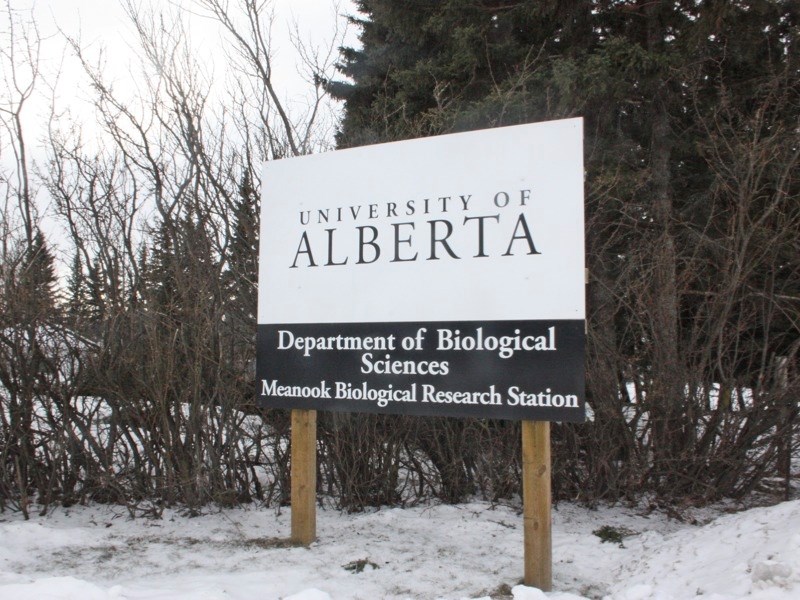Dr. Kelman Wieder of Villanova University may be based in Pennsylvania, USA, but he has a sobering message or two for northern Albertans, particularly when it comes to the Joint Canada/Alberta Oilsands Monitoring Program.
Wieder, who will be giving a public lecture this Thursday at Athabasca University through Science Outreach-Athabasca, specializes in muskeg, bogs and fens. Despite those wetlands being important in the fight against global warming for their ability to be long-term carbon sinks, they have been largely left out of the joint oilsands monitoring plan, he said.
“We’ve been told there will be no funding for peat bogs at least for the next two years,” he said of the monitoring program’s implementation plan.
“From our perspective, 30 per cent of the landscape in northern Alberta will go unmonitored for at least the next two years,” he said. “I find that to be not a good thing.”
Environment Canada spokesperson Danny Kingsberry told the Advocate that the plan does call for monitoring of wetlands and the plants and animals that rely on them downstream of oilsands. He noted biodiversity in 82 wetland sites downstream of oilsands will also be monitored.
However, Kingsberry would not elaborate on what that monitoring would entail, nor would Environment Canada provide an interview to the Advocate.
“The entire joint oilsands monitoring document mentions the word ‘wetlands’ twice,” Wieder pointed out, referring to the Joint Canada Alberta/Canada Implementation Plan for Oil Sands Monitoring.
Wieder was based at the Meanook Biological Research Station for much of his research, and he has serious reservations about the station’s closure. He plans to touch on the closure, as well as some political changes, towards the end of his talk on Thursday.
“The effect of the closure of the Meanook Biological Research Centre on our research is dramatic and severe. And we are just one group,” said Wieder. “The closing of the field station has really compromised a lot of the present work and a lot of the future work.”
Kingsberry said a decision regarding any future use for the research station has yet to be made by Environment Canada.
Wieder said his Meanook-based research had started to show some of the deleterious effects nitrogen emissions from oilsands activities have on bogs.
“From my perspective, the need to continue monitoring is even more critical now that we’ve begun to see some effects on the region’s ecosystems,” he said.
Wieder has studied how nitrogen and sulfur emissions into the atmosphere from upgraders and trucks servicing the oilsands come back down as acid rain.
“So the region’s ecosystems are receiving these new inputs of nitrogen across a fairly broad region because of oilsands development. I will talk about how we know this is happening and what we are now finding out some of the effects on the natural systems are.”
Wieder said we normally think of nitrogen as fertilizer to be added to a garden for its positive effects on plant growth. But in systems that are not accustomed to nitrogen, he said, “It may not be such a good thing.”
“These are systems that have been there for thousands of years living under some of the cleanest air and cleanest water in North America, so when you start to change that and add especially nitrogen, then things change,” he pointed out.
The effect of nitrogen on wetlands will be the cornerstone of Wieder’s Thursday lecture, which is titled, “Mosses and Muskeg Matter — More than you Might Imagine.”
“We’ll talk about the general importance of peat bogs in terms of global climate, in terms of natural and man-made wildfires, and we’ll also talk about peat bogs up in the Fort McMurray area and how they are influenced by oilsands development,” said Wieder.
The free talk begins at 7 p.m. in the university’s governing council chambers, with refreshments to follow.


